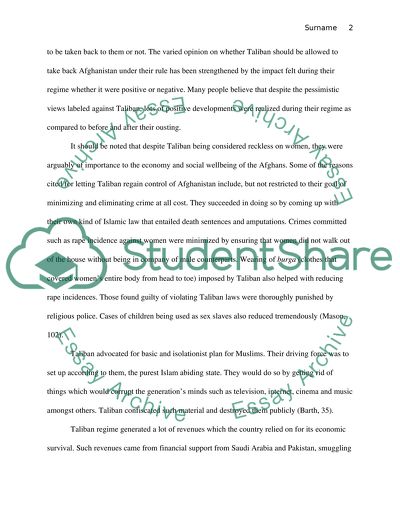Cite this document
(“Rule of Taliban Essay Example | Topics and Well Written Essays - 1250 words”, n.d.)
Retrieved from https://studentshare.org/miscellaneous/1594043-rule-of-taliban
Retrieved from https://studentshare.org/miscellaneous/1594043-rule-of-taliban
(Rule of Taliban Essay Example | Topics and Well Written Essays - 1250 Words)
https://studentshare.org/miscellaneous/1594043-rule-of-taliban.
https://studentshare.org/miscellaneous/1594043-rule-of-taliban.
“Rule of Taliban Essay Example | Topics and Well Written Essays - 1250 Words”, n.d. https://studentshare.org/miscellaneous/1594043-rule-of-taliban.


